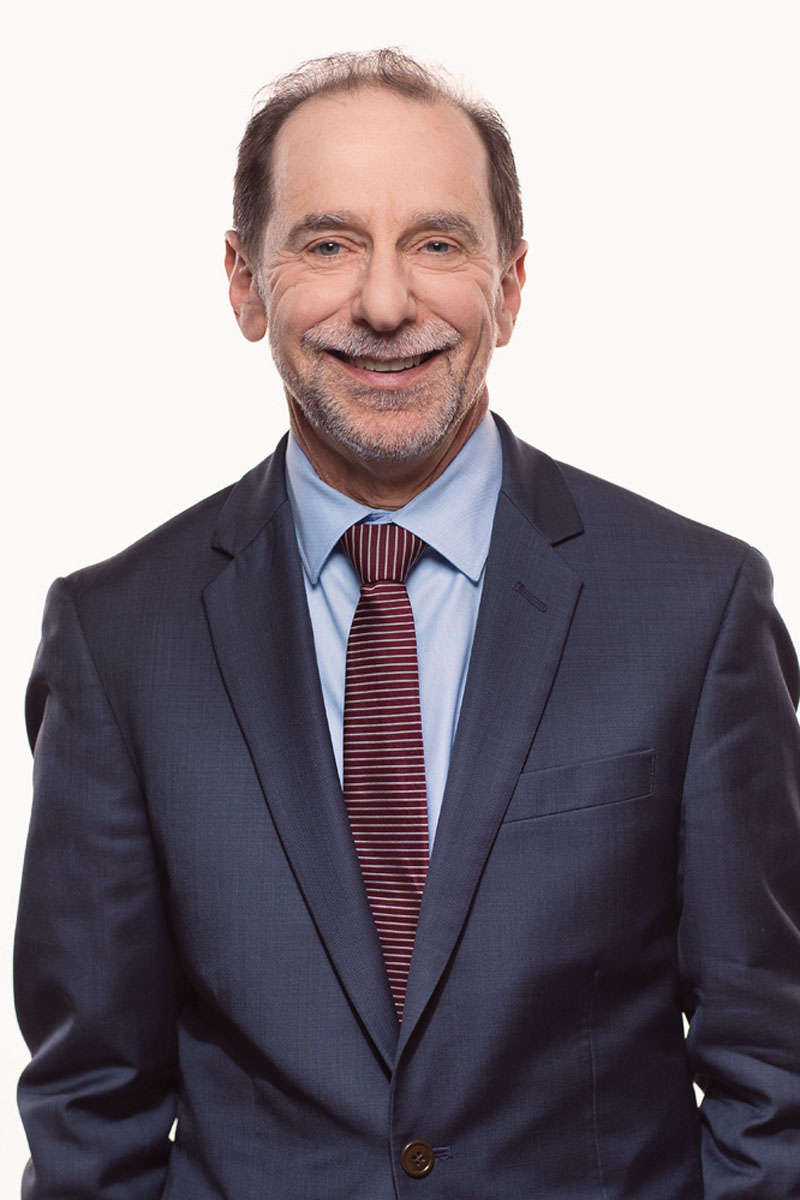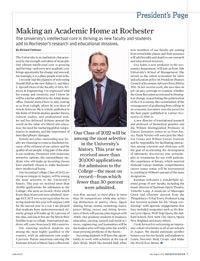President’s Page
 (Photo: John Myers)
(Photo: John Myers)The University is an institution characterized by the strength and talent of its people. Our vibrant intellectual core is growing and thriving—and every new academic year brings opportunity for change and renewal. Increasingly, it is a place people want to be.
I recently had the pleasure of welcoming Donald Hall as the new Robert L. and Mary L. Sproull Dean of the Faculty of Arts, Sciences & Engineering. I’m impressed with his energy and creativity, and I know he will be a stellar addition to the AS&E deans’ office. Donald started here in July, coming to us from Lehigh, where he was dean of Arts & Sciences. He is widely published in the fields of British studies, gender theory, cultural studies, and professional studies and has delivered lectures around the world on the value of a liberal arts education, the need for nurturing global competencies in students, and the importance of interdisciplinary dialogue.
Donald and other outstanding new faculty are choosing to come to Rochester because of the richness of our culture and the quality of our people. A big part of the draw is our students. Presented with numerous attractive options, the extraordinary students who will make up incoming classes have similarly chosen to make Rochester their intellectual home.
Our incoming College Class of 2022, arriving on campus in August, will be among the most selective in the University’s history. This year we received more than 20,000 applications for admission to the College—the most on record—from which fewer than 30 percent were admitted. Average SAT/ACT two-score equivalent for entering students this year will surpass 1,400 for the second year in a row. I am pleased that students from underrepresented minority groups will make up 18.3 percent of the class, and one in five are the first in their families to go to college. International students will come from nearly 100 countries.
Our entering medical students are among the most highly qualified in the country, with an admissions rate under 5 percent. Future musicians entering the Eastman School of Music have collectively won first, second, or third place in more than 50 competitions while also achieving distinction in poetry, chess, figure skating, karate, tennis, swimming, dance, power lifting, soccer, and skiing. Seventeen of them will pursue joint degrees with AS&E. Our graduate students in business, education, nursing, natural and social sciences, engineering, and humanities will be the leaders who will help solve the world’s most pressing problems of the future.
Incoming students will have the opportunity to work with scholars at the top of their fields. Much like Donald Hall, other new members of our faculty are coming from remarkable places, and their presence will add breadth and depth to our research and educational missions.
Lisa Kahn, a new professor in the economics department, will join us from Yale University’s School of Management. She served as the senior economist for labor and education policy on President Obama’s Council of Economic Advisors from 2010 to 2011. In her current work, she uses data on job vacancy postings to examine whether the Great Recession accelerated technological change, exacerbating the polarization of the US economy. Her examination of the consequences of graduating from college in an economic downturn won the award for the best paper published in Labour Economics in 2010–11.
A new director of translational research and professor of biomedical genetics and the Wilmot Distinguished Professor in Cancer Genomics comes to us from Emory. Paula Vertino will soon join the Medical Center and Wilmot Cancer Institute and be responsible for facilitating interaction among scientists and clinicians with the goal of accelerating the development of laboratory discoveries into technologies or treatments for use with patients. Her experience at Emory, which received National Cancer Institute comprehensive cancer center status, will be instrumental in assisting in Wilmot’s pursuit of the same designation.
Eastman welcomes a wonderfully talented group of new faculty, including the music director of Eastman Opera Theatre, Timothy Long. A musician of Muscogee Creek and Choctaw descent from the Thlopthlocco Tribal Town, Professor Long has received acclaim for his “sharp conducting” with operatic engagements that have included companies such as the Boston Lyric Opera, Wolf Trap Opera, the Juilliard School, New York City Opera, Opera New England, and many others.
I look forward to welcoming an impressive cohort of scholars to all of our schools in August. We should anticipate another banner year for our faculty and students to Learn, Discover, Heal, Create—and Make the World Ever Better.

